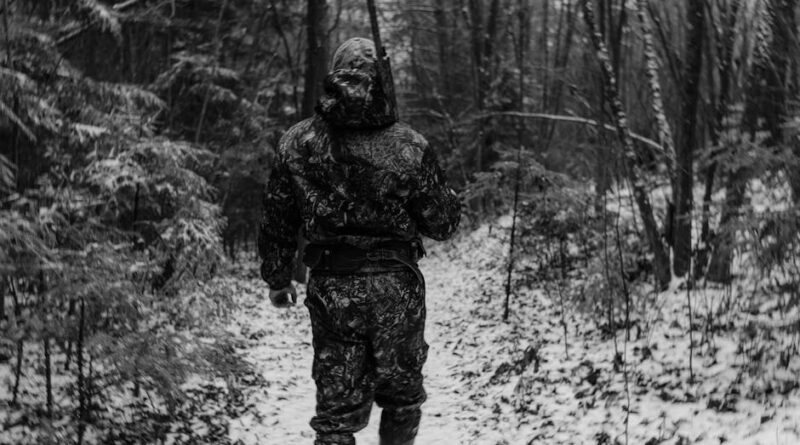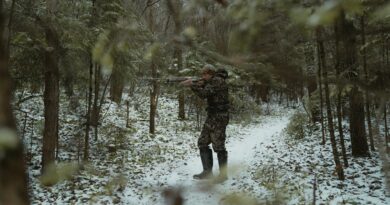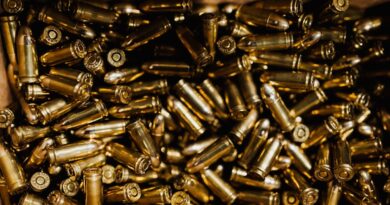Tips for Selecting a Concealed Carry Weapon
When it comes to personal protection, choosing the right concealed carry weapon is a crucial decision. Whether you are a seasoned gun owner or a first-time buyer, selecting a firearm that suits your needs and preferences requires careful consideration. With a myriad of options available in the market, it can be overwhelming to navigate through the choices and make an informed decision. In this comprehensive guide, we will explore the essential tips for selecting a concealed carry weapon, covering everything from caliber selection to grip size and beyond.
The Importance of Concealed Carry
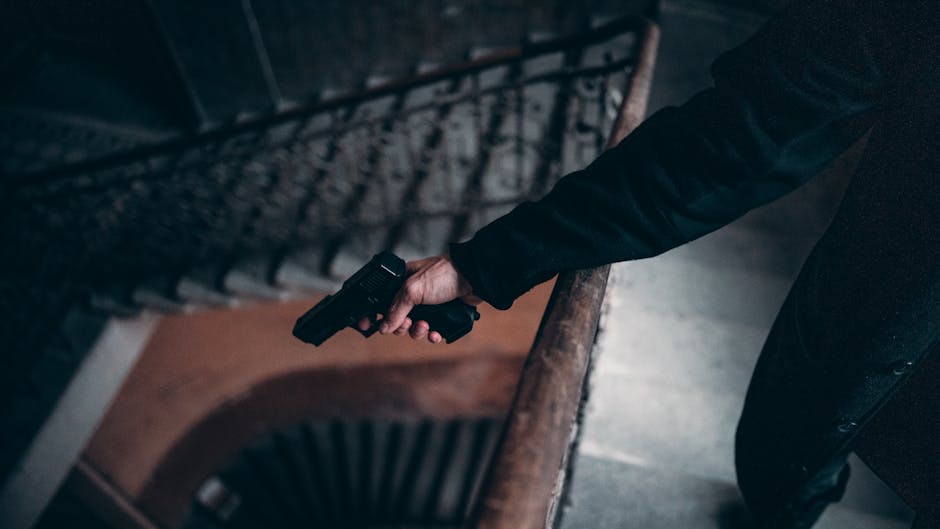
By Elijah O’Donnell via Pexels
Concealed carry refers to the practice of carrying a weapon, typically a handgun, in public in a concealed manner. While the decision to carry a concealed weapon is a personal choice, it allows individuals to protect themselves and their loved ones in potentially dangerous situations. In today’s uncertain world, having the ability to defend oneself can provide a sense of security and peace of mind.
However, with great power comes great responsibility. Carrying a concealed weapon requires proper training, knowledge of local laws, and a commitment to safety. Before you embark on the journey of selecting a concealed carry weapon, it is essential to familiarize yourself with the legal requirements and ethical considerations that come with carrying a firearm.
Factors to Consider When Choosing a Concealed Carry Weapon
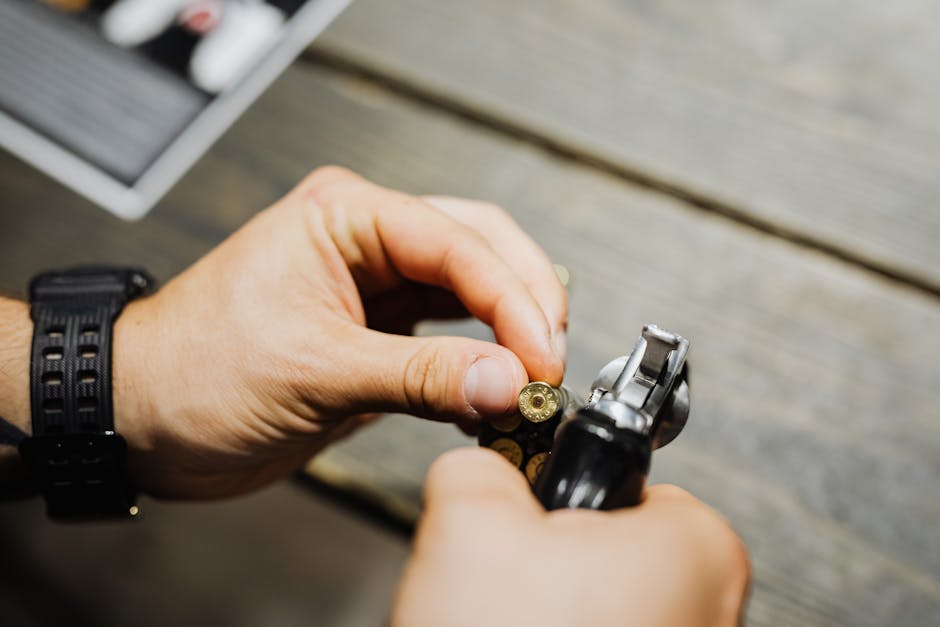
By Photo By: Kaboompics.com via Pexels
1. Caliber Selection: One of the first decisions you will need to make when selecting a concealed carry weapon is the caliber. Caliber refers to the diameter of the bullet the firearm shoots. Common calibers for concealed carry handguns include .380 ACP, 9mm, .40 S&W, and .45 ACP. Each caliber has its own advantages and disadvantages, so it is important to choose one that you are comfortable shooting and can handle effectively.
2. Size and Weight: The size and weight of the concealed carry weapon are crucial factors to consider, especially if you plan on carrying it on a daily basis. A smaller, lightweight firearm is easier to conceal and carry for extended periods. However, smaller guns typically have more recoil and less capacity, so it is essential to find a balance between concealability and shootability.
3. Capacity: The capacity of the firearm refers to the number of rounds it can hold. While a higher capacity firearm allows you to carry more rounds, it also adds to the size and weight of the gun. Consider your comfort level and shooting proficiency when deciding on the capacity of your concealed carry weapon.
4. Trigger Pull: The trigger pull of a firearm refers to the force required to pull the trigger and discharge the weapon. A smooth and consistent trigger pull is essential for accuracy and control. Some firearms come with adjustable triggers, allowing you to customize the pull weight to your liking.
5. Sights: The sights on a firearm play a crucial role in aiming and targeting. Choose a concealed carry weapon with sights that are easy to acquire and align. Night sights or fiber-optic sights can improve visibility in low-light conditions, enhancing your shooting accuracy.
6. Grip Size and Texture: The grip of the firearm is where you make contact with the weapon, so it is essential to choose a grip size and texture that feels comfortable and secure in your hand. A textured grip can provide better control and prevent slippage during shooting.
7. Concealability: The primary purpose of a concealed carry weapon is to remain hidden from view. Consider the shape, profile, and overall design of the firearm to ensure it can be concealed effectively. Look for features such as rounded edges and slim profiles that minimize printing and make it easier to carry discreetly.
Expert Opinions on Selecting a Concealed Carry Weapon
To gain further insights into the process of selecting a concealed carry weapon, we reached out to firearms experts and instructors for their expert opinions. According to John Smith, a certified firearms instructor with over 20 years of experience, “When choosing a concealed carry weapon, it is important to prioritize reliability and shootability. Look for a firearm that you can handle comfortably and practice with regularly to build proficiency.”
Mary Johnson, a self-defense expert and advocate, emphasizes the importance of training and practice. “Carrying a concealed weapon is a big responsibility that requires ongoing training and practice. Invest in professional instruction and regular range time to ensure you are prepared to use your firearm effectively in a self-defense situation.”
Common Misconceptions About Concealed Carry Weapons
1. Bigger is Better: One common misconception about concealed carry weapons is that larger guns are more effective for self-defense. While larger guns may offer higher capacity and greater stopping power, they can be harder to conceal and carry comfortably. It is essential to find a balance between size, capacity, and shootability when selecting a concealed carry weapon.
2. One Size Fits All: Another misconception is that there is a one-size-fits-all solution when it comes to concealed carry weapons. Every individual has unique preferences, hand sizes, and shooting abilities. What works for one person may not work for another. Take the time to try out different firearms and find the one that suits you best.
Comparative Analysis of Popular Concealed Carry Weapons
When comparing popular concealed carry weapons on the market, several models stand out for their reliability, performance, and concealability. Some of the top choices among gun owners include:
1. Glock 19: The Glock 19 is a compact 9mm handgun known for its reliability and ease of use. It offers a good balance of size, capacity, and shootability, making it a popular choice for concealed carry.
2. Smith & Wesson M&P Shield: The Smith & Wesson M&P Shield is a slim and lightweight handgun available in various calibers, including 9mm and .40 S&W. It is praised for its ergonomic design and excellent trigger pull.
3. Sig Sauer P365: The Sig Sauer P365 is a subcompact 9mm pistol with an impressive capacity of 10+1 rounds. Despite its small size, it offers excellent shootability and accuracy, making it a favorite among concealed carriers.
Frequently Asked Questions About Concealed Carry Weapons
1. Do I need a special permit to carry a concealed weapon? The requirements for carrying a concealed weapon vary by state. In most states, you will need to obtain a concealed carry permit or license to legally carry a concealed firearm in public. Check your state’s laws and regulations for specific requirements.
2. What is the best caliber for a concealed carry weapon? The best caliber for a concealed carry weapon depends on your personal preferences and shooting abilities. Popular calibers for concealed carry include .380 ACP, 9mm, .40 S&W, and .45 ACP. Choose a caliber that you can handle effectively and shoot accurately.
To Wrap Things Up
Choosing a concealed carry weapon is a significant decision that requires careful consideration and research. By following the tips outlined in this guide, you can select a firearm that meets your needs, preferences, and shooting abilities. Remember that carrying a concealed weapon is a responsibility that should not be taken lightly. Invest in proper training, practice regularly, and stay informed about the laws and regulations governing concealed carry in your area. With the right mindset and preparation, you can enhance your personal safety and protect yourself in potentially dangerous situations.

